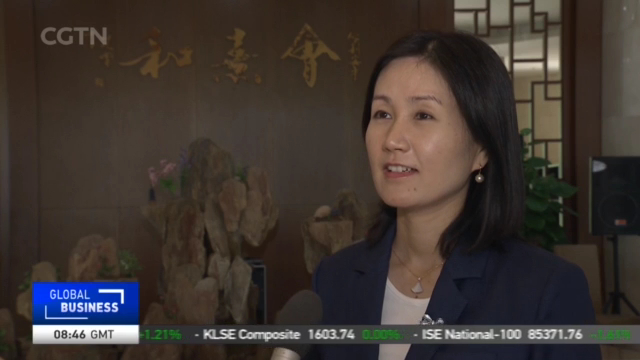
18:42, 22-May-2019
Silver Haired Economy: Accelerating aging population bring rising demand of senior care
Updated
18:40, 25-May-2019
04:15

In the traditional mindset of Chinese, sending parents to the senior nursing homes is against filial piety. But the mindset is changing, and as the disposable income of every household is increasing, more and more people have sent their parents to the nursing homes. And living in nursing homes have been the choice of the elderly themselves. Some high end senior homes in Beijing are even filled to their capacity. Our reporter Song Yaotian went to one of such institutions and brings us this report.
More and more elderly people have happily chosen to spend their remaining years in professional institutions rather than with their loved ones at home. This can be obviously seen at this senior nursing home, one nestled in Beijing's west mountain and is run by state-owned company Poly Group.
China now has 240 million senior citizens, accounting for a slightly over 17% of its population. In 2018 alone, senior people increased over 8 million, here senior means those aged over 60. The pace of China into an aging society is accelerating. 15 years later, China's senior population will be doubled to 480 million, accounting for nearly 30% of the whole population.
WANG LILI, DEPUTY DIRECTOR HEALTH INDUSTRY INVESTMENT COMPANY, POLY GROUP "Our nursing home opened in 2012. In 2015 which was three years after its opening, it realized full occupancy. Senior people's mindset is changing, many are now voluntarily seeking high quality senior care institutions."
There are 260 residents here. And their average age is 84. But many, even in their eighties or nineties, still belong to the 'active' level appraised by the institution. They barely need help in their daily life. But they still want to spend money more than hiring a nanny, to live here. Some say hobbies and friends are extremely important for old people, here they can get both.
WANG MINGRUI RESIDENT, HEXIHUI SENIOR HOME "My wife has passed away. I feel lonely at home and I don't want to bother my children."
Adjacent to colleges and research institutes make this community filled with intellectuals.
WANG ZUFA RESIDENT, HEXIHUI SENIOR HOME "We've made a lot of friends here. Most of us are well educated, experts in various fields. So we can talk about big issues, like the country's development."
CHEN ZAIJIA RESIDENT, HEXIHUI SENIOR HOME "All the staff are very nice to us. There are ample activities here."
Unlike many high end institutions which require residents to pay 'fee of membership', often fetching 1 to 2 million yuan. This one only charges a returnable deposit of 100-300 thousand yuan. And 8000 to over 10-thousand monthly cost, covering room renting, dining and care fees. A good pension, children willing to pay the bill, renting their own homes are the main sources for paying expenses here.
Many real estate companies and insurance companies have entered into this lucrative market in recent years. But experts say this industry is not for quick money.
ZHANG BIN, VICE CHAIRMAN OF SENIOR & TOURISM DEPT., ASSOC. OF CHINA REAL ESTATE MANAGERS "Compared to other real estate units, senior care homes see long period of money return. It's not a sector for quick money. But it's a quality asset, will bring long period, stable revenue to developers."
In 2017, Poly group issued an "asset backed security" product, which is similar to the US's Reits, the Real Estate Investment Trust. The company's senior homes were packed into the security product, for the first time realizing a 'closed loop' of capital, in this sector.
SONG YAOTIAN BEIJING "There's no doubt the market potential of China's senior homes is huge. But experts say additional government support and more mature capital management system, for example finance tools like Reits, is key to the sector's further development. Song Yaotian, CGTN."

SITEMAP
Copyright © 2018 CGTN. Beijing ICP prepared NO.16065310-3
Copyright © 2018 CGTN. Beijing ICP prepared NO.16065310-3